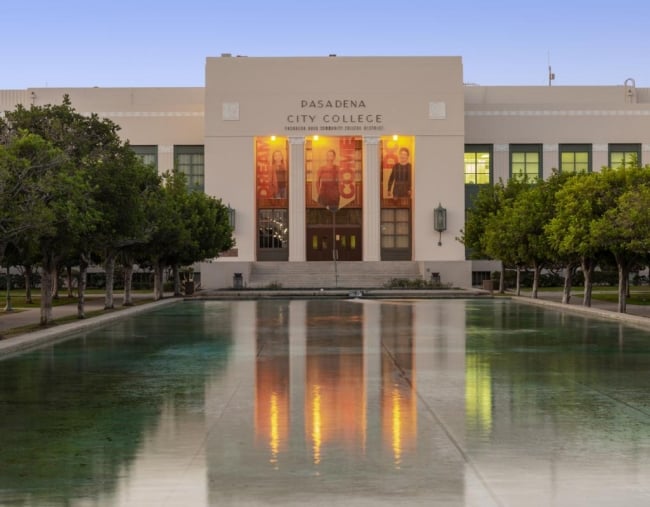You have /5 articles left.
Sign up for a free account or log in.

Pasadena City College is one of the first colleges to join the alliance.
ISTOCK.COM/Angel Di Bilio
More than half of California's 115 community colleges are teaming up to address racial inequities on their campuses in the wake of nationwide protests over police brutality and racism.
The California Community College Equity Leadership Alliance will provide resources, trainings and annual assessments to its members, all aimed at improving equity.
The Race and Equity Center at the University of Southern California and its founder, Shaun Harper, also a Provost Professor at USC, created the initiative.
Harper had the idea during a lunch in December. He introduced it to the Los Angeles Community College District in January, and all of the campuses agreed to join.
Then, the COVID-19 pandemic hit, forcing college presidents to pivot and focus on the switch to remote learning.
Now, Harper is jump-starting the initiative as the nation has "an important reckoning with systemic racism," he said.
"What if we could bring these colleges together to take a united stance against racism in all its forms?" he said. "This isn’t just a statement. [The colleges] are actually signing on with resources to do the work on their own campuses to reduce racial inequity."
With the resources provided through the alliance, the goal is to break down systemically racist structures by training members of various parts of the campuses on how to fight against implicit bias and obvious racist practices.
Each member of the alliance will pay the center $25,000 annually for 12 professional trainings throughout the year, access to an online resource center and annual campus racial climate surveys.
The first training will be held virtually on Monday. Each college can send 20 people to the first training and five people to each subsequent training, Harper said.
Fullerton College plans to send different people to each training, to ensure people from all areas of campus can participate and learn, said Greg Schulz, president of the college.
"One goal I have is to shift the climate," he said, adding that while he is proud of the work Fullerton has done, it still has a long way to go.
Schulz hopes that people will learn to be more comfortable talking about race so they can better understand racial injustices, and so the college can change the way it normally plans so it can stop the cycle of systemic racism.
"It's not enough to just not be racist," he said. "We need to stand together and be definitively antiracist."
The Race and Equity Center previously developed the National Assessment of Collegiate Campus Climates survey, which it will use to assess students' perspectives in the first year of the alliance. The following year, the center will assess the perspectives of faculty members, then staff members in the third year. The assessments will then rotate through again to see what has improved at the colleges over time, Harper said.
Erika Endrijonas, president of Pasadena City College, hopes this training and assessment will help spread responsibility for the work of improving equity throughout the campus.
"For too long, colleges have allowed a particular part of the college to own that work," like student services, she said.
But to achieve her goal of Pasadena being the first college in California to close all equity gaps by 2027, everyone on campus needs to see equity work as their responsibility.
Both Endrijonas and Schulz said these issues are priorities for them, which is why they committed funding to the alliance in the wake of a global pandemic and ensuing financial crisis that has rocked higher education and the state budgets public colleges rely upon.
"Regardless of whether we’re in a financial crunch or not, every way that we spend dollars is a reflection of what we value as an institution," Endrijonas said. "If we value advancing our equity agenda, then we will figure out how to pay for it."
Harper echoed the sentiment that many black activists and their allies have been making over the past few weeks: statements against racism are good, but they are not enough.
"We want action, we don’t want just declarations," he said. "This is a real example of what antiracist action looks like."
Harper sent the invitation to community college presidents on Sunday, so he is hopeful that, with more time, more presidents will respond and join the alliance. The alliance will always be open to those willing to join, he said.
"This is presidential leadership. I’ve never seen presidents come together like this around race," he said. "This is an inspiring, instructive example for the rest of the nation."




